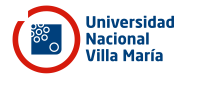Educación Financiera de adultos mayores: situación actual en Argentina y desafíos frente al Covid-19
Resumo
La educación financiera (EF) se concibe como un proceso por medio del cual se puede lograr que los individuos comprendan mejor los conceptos financieros, conozcan los productos y servicios financieros y adquieran capacidades y habilidades para tomar decisiones adecuadas en la planificación y gestión de sus finanzas personales, que les permitan mejorar sus comportamientos en ese ámbito y alcanzar así un mayor bienestar. En la Argentina, existen importantes deficiencias en la EF de la población, la que se hace aún más patente en el caso de los adultos mayores. El especial contexto de ASPO, que se ha dispuesto en Argentina como paliativo para hacer frente a la pandemia del COVID-19, ha evidenciado claramente esta situación, la cual nos interpela, en nuestro rol de académicos, a reflexionar sobre esta importante problemática relacionada con los adultos mayores, que son quienes conforman el grupo más vulnerable y el más afectado por la pandemia. En este marco se plantea el presente trabajo, el cual tiene como objetivo describir la situación actual de la EF de los adultos mayores argentinos, así como reflexionar en torno a los desafíos que presenta, en nuestro país, la EF para este grupo etario en el actual contexto.
Palavras-chave:
educación financiera, adultos mayores, Argentina, Covid-19, deficienciasLicença
Copyright (c) 2020 Patricia Inés Musa, Cecilia Ficco, Valeria Elisa Mainero

Este trabalho está licenciado sob uma licença Creative Commons Attribution 4.0 International License.
Downloads
Referências
AMADASI, E. Y CICCIARI, M. (2019). Los servicios bancarios en las personas mayores. Observatorio de la deuda social argentina. Buenos Aires: UCA.
ARANGUREN, R. (1 de Junio de 2020). Adultos mayores y banca electrónica: crónica de una frustración anunciada. Diario La Nación. Recuperado de https://www.lanacion.com.ar/opinion/adultos-mayores-banca-electronica-cronica-frustracionanunciada-nid2372293.
BANCO DE DESARROLLO DE AMÉRICA LATINA -CAF- (2016). Encuesta de medición de capacidades financieras en los países andinos. Chile.
BANCO DE DESARROLLO DE AMÉRICA LATINA -CAF- (2017). Determinantes socioeconómicos de la educación financiera. Evidencia para Bolivia, Colombia, Ecuador y Perú.
BANCO CENTRAL DE LA REPÚBLICA ARGENTINa (2017). Encuesta de medición de capacidades financieras en Argentina. Buenos Aires: BCRA.
BANCO CENTRAL DE LA REPÚBLICA ARGENTINA (2019). Informe de inclusión financiera.
CONNOLLY, C. Y HAJAJ, K. (2001). Financial Services and Social Exclusion. Sidney: Financial Services, Consumer Policy Centre-University of New South Wales.
GÓMEZ BLANCO, A. (2020, Abril 23). Cómo proteger a los mayores de los 'hackers' en tiempos de COVID-19. Extraido el 1 Septiembre, 2020 de https://www.bbva.com/es/como-proteger-a-losmayores-de-los-hackers-en-tiempos-de-covid-19/.
INSTITUTO NACIONAL DE ESTADÍSTICA Y CENSOS (2012). Encuesta Nacional sobre Calidad de Vida de Adultos Mayores. Principales resultados Serie Estudios INDEC N° 46. Argentina.
KLAPPER, L., LUSARDI, A. Y VAN OUDHEUSDEN, P. (2015). Financial Literacy Around the World: insights from the Standard & Poor’s ratings services global financial literacy survey. World Bank Development Research Group.
MAGNONI, B., ROA, M. J., BURGUESS, E. Y QUIROS, R. (2020). Diagnóstico de la Eficiencia de la Protección a los Usuarios de Servicios Financieros en México. Sparkassenstiftung für internationale Kooperation y Nacional Monte de Piedad.
MINISTERIO DE HACIENDA. PRESIDENCIA DE LA NACIÓN ARGENTINA (2019). Plan Nacional de Educación Financiera.
NACIONES UNIDAS (2010). Objetivos de Desarrollo del Milenio.
OCDE/CAF (2020), Estrategias nacionales de inclusión y educación financiera en América Latina y el Caribe: retos de implementación.
ORGANISATION FOR ECONOMIC COOPERATION AND DEVELOPMENT (OECD) (2005). Improving Financial Literacy: Analysis of Issues and Policies, París. OECD.
ORGANISATION FOR ECONOMIC COOPERATION AND DEVELOPMENT -OECD- (2010). Detailed Guide to Evaluating Financial Education Programmes. Government of Canada on Behalf of the Organisation for Economic Cooperation and Development (OECD) International Network on Financial Education (INFE).
RACCANELLO, K. Y HERRERA, E. (2014). Educación e inclusión financiera. Revista Latinoamericana de Estudios Educativos, 44(2), 119-141.
ROA, M. (2019). Digitalización para la inclusión financiera: educación financiera y protección al Consumidor Financiero. Presentación en XI Conferencia de Educación e Inclusión Financiera en América Latina y el Caribe. CEMLA y Banco de México, Ciudad de México.





